DOJ manufactures another lawsuit to block in-state tuition for undocumented immigrants
A little-noted lawsuit in Oklahoma could block a state law with no actual adversarial litigation. Also: My Thursday reading, as I started catching up from vacation.
On Thursday, a federal magistrate judge recommended that a federal judge in Oklahoma strike down the state’s two-decade old law allowing certain undocumented individuals to get in-state tuition for college — acceding to a manufactured lawsuit between the Trump administration and the state’s attorney general.
Just two days earlier, Oklahoma’s harshly anti-immigrant attorney general, Gentner Drummond, announced that he was “partner[ing]“ up with the harshly anti-immigrant Trump administration to prompt this court ruling.
Drummond claimed in a news release that the policy at issue — the ability of undocumented individuals to get in-state tuition for college — represents “a longstanding exploitation of Oklahoma taxpayers.”
It is, however, an Oklahoma law that has been in place for around two decades. Under the law, students who graduate from an Oklahoma high school and have been in the state for the two years prior to graduation are eligible for in-state tuition. If individuals are not citizens or do not have “an immigration status permitting study at a postsecondary institution,“ they have to be taking one of several possible steps detailed in the law in order to be eligible.
But, despite Drummond’s role as the attorney general of Oklahoma — the person responsible for defending the laws of the state — he filed a joint motion with officials from the U.S. Justice Department on Tuesday agreeing that the state law and associated policy ”are preempted by” a federal law.
As DOJ claimed in a Thursday news release, “The Oklahoma law blatantly conflicts with federal law and is thus in conflict with the Supremacy Clause of the U.S. Constitution.“
This is the second time DOJ has taken an action like this this year. The first time, as detailed by Steve Vladeck in June, involved Texas and resulted in a remarkable six-hour settlement when the case was brought to U.S. District Judge Reed O’Connor (of single-judge-division infamy).
As Vladeck explained then, “[T]he Supreme Court has long made clear that Article III courts lack the power to adjudicate such transparently collusive lawsuits—because there is no true case or controversy when ‘both litigants desire precisely the same result.’”
And yet, here we are again.
The federal law — at first glance — might appear to conflict with what Oklahoma does:
But, and key to understanding the case, this 1996 federal law preceded the Oklahoma law’s passage. Like roughly two dozen states across the country, policies aimed at providing for benefits now generally are premised on other bases — like graduation from an in-state high school.
In other words, the states looked at the federal restriction and acted accordingly.
Despite that, Drummond is now insisting, “Rewarding foreign nationals who are in our country illegally with lower tuition costs that are not made available to out-of-state American citizens is not only wrong—it is discriminatory and unlawful.“
Notably, DOJ’s Thursday news release about the litigation did not address the manufactured nature of the lawsuit, presenting it as a normal complaint:
And yet, on the same day as DOJ filed its complaint, Drummond issued his news release and DOJ and Drummond’s office filed their joint motion to resolve the case. While similar situations do happen at times, those generally involve settlement agreements in response to Civil Rights Division investigations.
Under the DOJ-Oklahoma Attorney General’s Office request, however, they are agreeing that a state law should be held to be unconstitutional. Specifically, they ask:
Plaintiff and Defendant request that the Court enter a final judgment declaring that Okla. Stat., tit. 70, § 3242 and OSRHE Policy § 3.18.6 violate the Supremacy Clause and are therefore invalid.
Just two days later, U.S. Magistrate Judge Edward Snow recommended that “the Joint Motion for Entry of Consent Judgment be GRANTED, and the proposed Order be entered.“
In Thursday’s order, Snow went along with all of this with no questions asked about the past 20 years:
In Snow’s recommendation order, he directed that any objections “must be filed within three days” due to the “exigencies of the Court’s calendar.”
Normally, a party has 14 days to lodge any objections to a magistrate judge’s recommendations — but, given the manufactured nature of the entire lawsuit, no party is going to object. However — and, again, given the manufactured nature of the lawsuit — there could be a group or set of individuals who would represent or directly be affected by this recommended order who might wish to intervene in this lawsuit and actually present the argument that the state law does not conflict with the federal law.
But, under Snow’s Thursday order, individuals have just three days — five days since the lawsuit was filed — to find counsel and seek intervention.
What’s more, all of this could quickly have larger implications. According to data from the Higher Ed Immigration Portal, more than 30 states allow tuition and financial aid equity for at least some students:
These manufactured lawsuits could be an effort to create what the Trump administration will claim is “precedent” in future challenges to similar polices in other states — jurisdictions that actually wish to protect such policies.
Although, as district court rulings, other courts would not be bound by them, the order — and the effects — would certainly be used by DOJ to seek to further the Trump administration’s anti-immigrant efforts.
Elsewhere in the news
As I catch up from vacation, I know a lot is going on that folks are looking for me to discuss. I will do so as appropriate, but, for now, here are some of the pieces that I looked to this morning.
First, a broad look from G. Elliott Morris at “Republicans’ mid-cycle partisan gerrymander in Texas“ and “President Donald Trump’s firing last Friday of the non-partisan employment statistician heading up the Bureau of Labor Statistics.“
And, relatedly, at Bolts …
… they talked with Michael Li from the Brennan Center about the Texas redistricting.
Of course, the FBI angle — added to the story on Thursday — raises a whole separate set of questions.
Over in Tennessee, meanwhile, an execution horror. None of the Democratic appointees on the U.S. Supreme Court noted any dissent on August 4 when the high court refused to step in.
Black was Tennessee’s second execution this year.
As the 28th execution in the U.S. in 2025, that makes this the deadliest year for executions in America over the past decade — a fact that the Associated Press noted is being driven by the high number of people being killed under Florida Gov. Ron DeSantis’s watch.



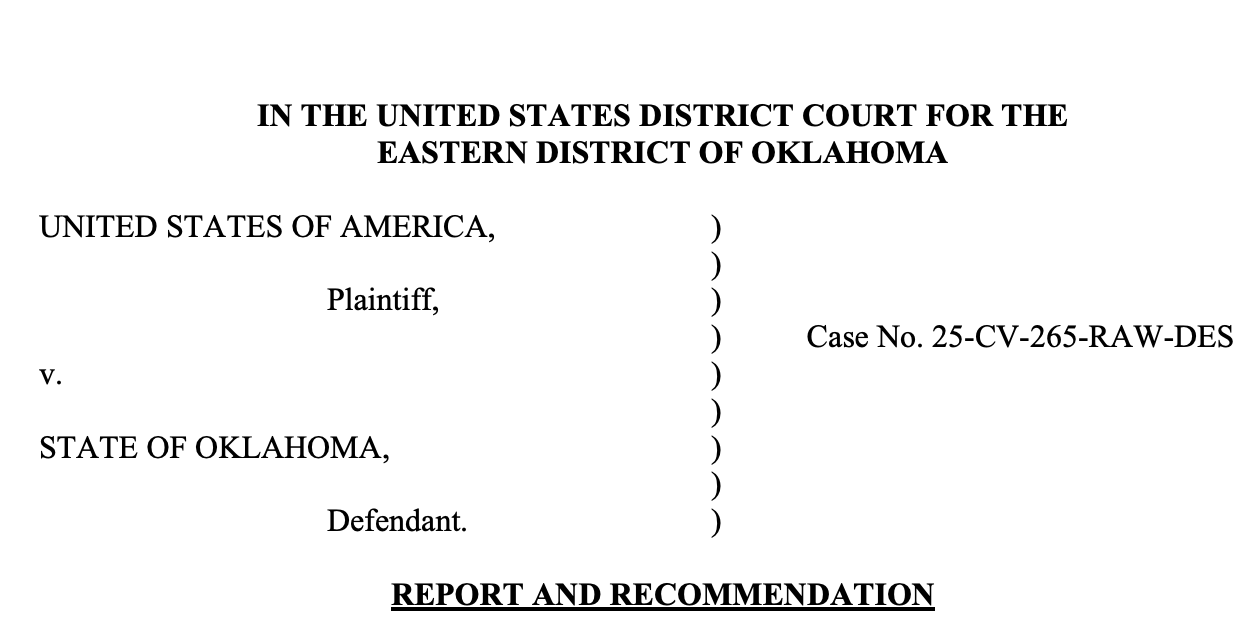
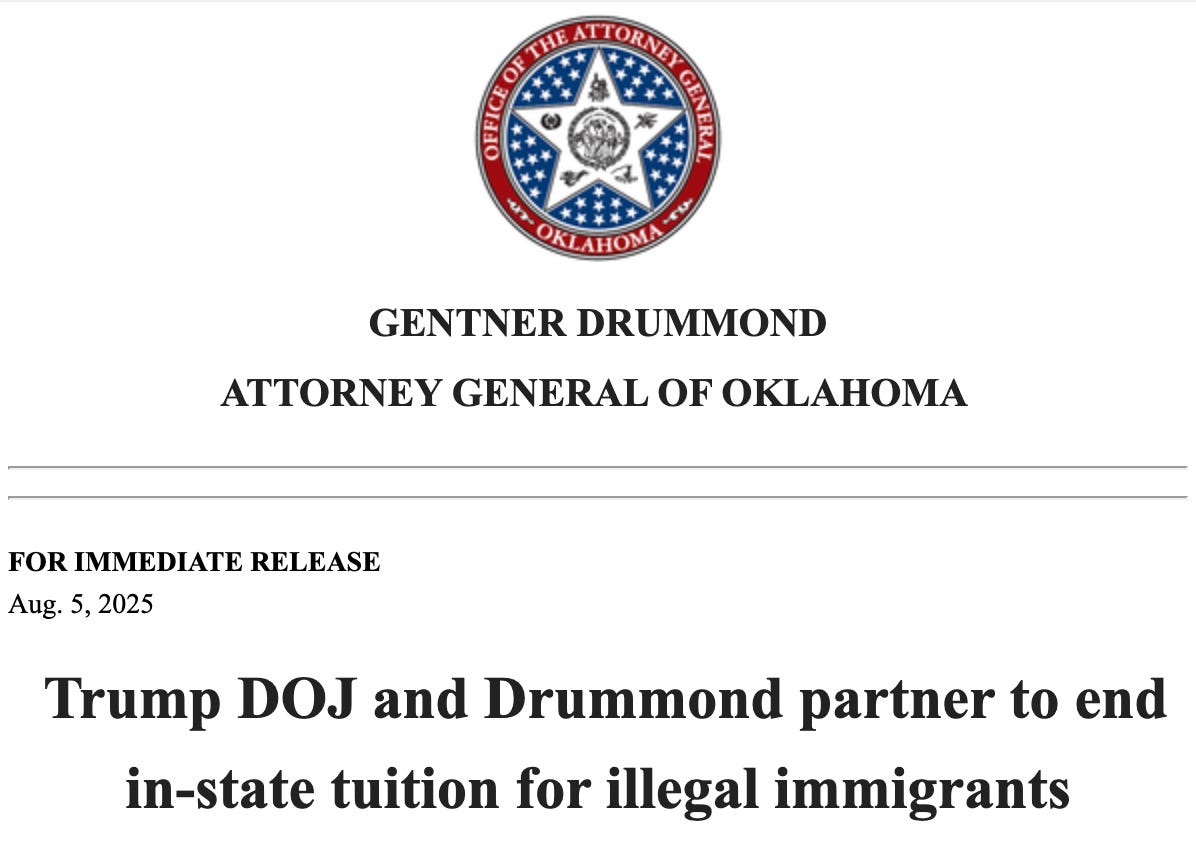

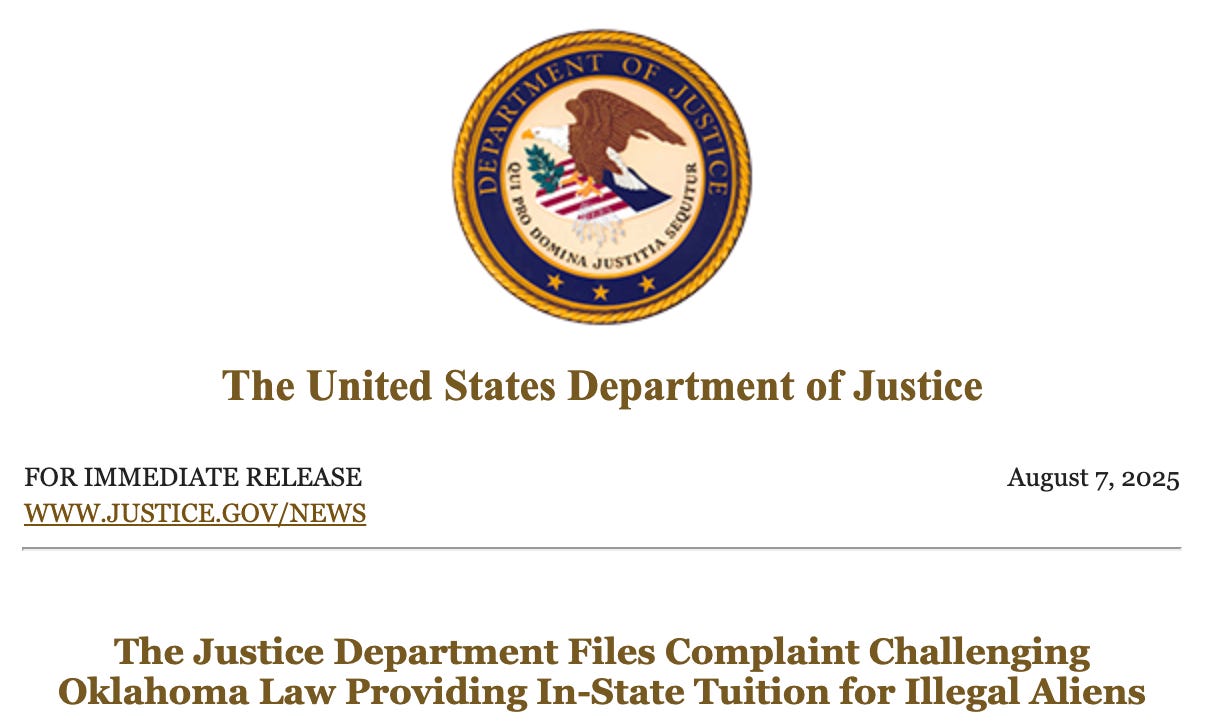
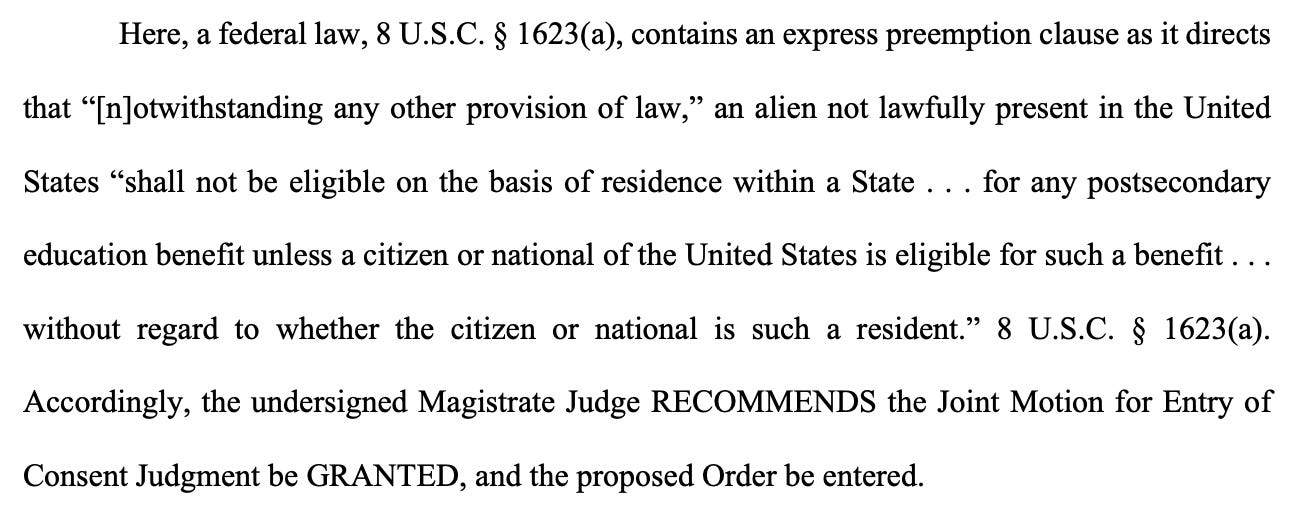
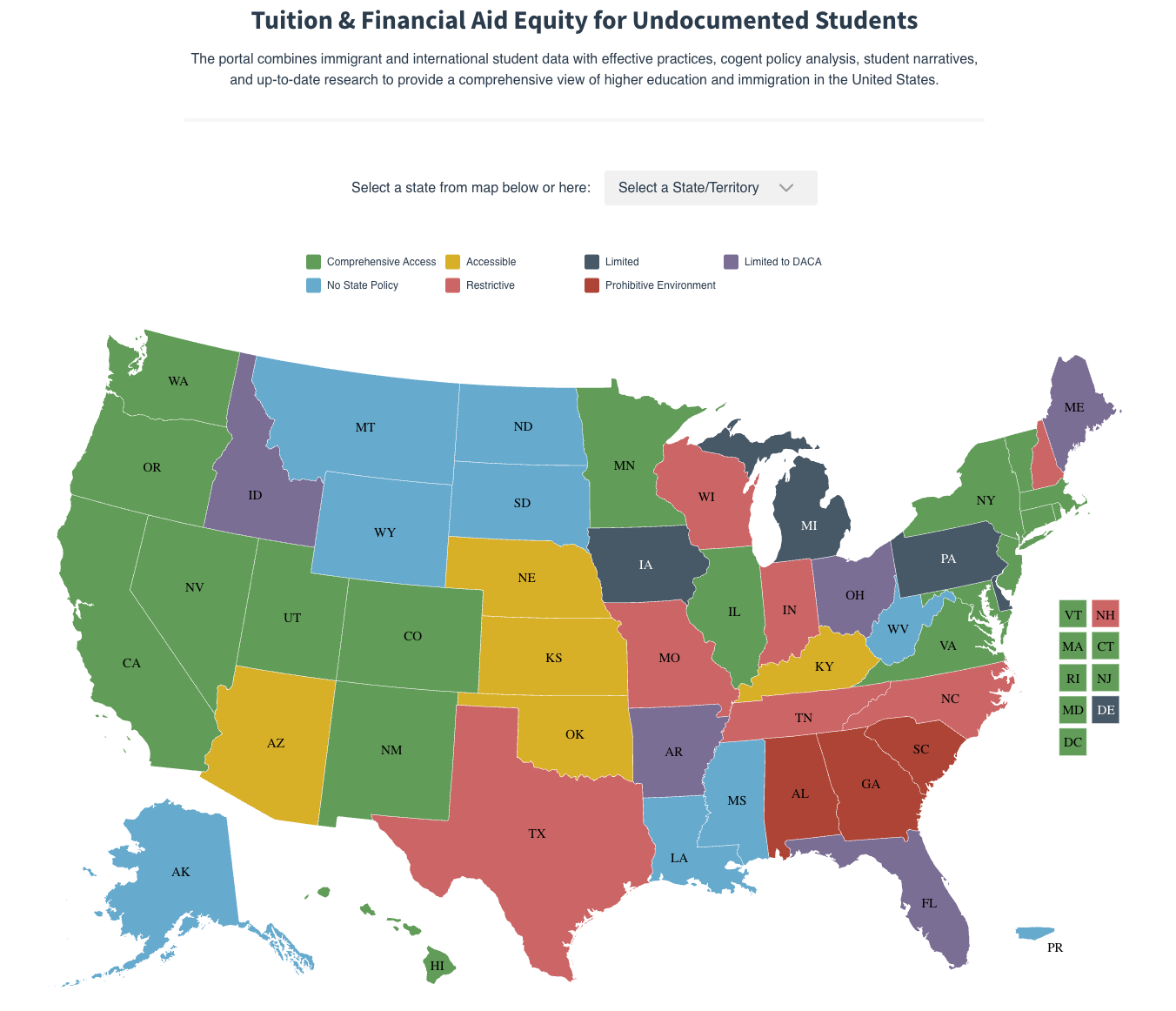



Interesting that this case was filed in the Eastern District of Oklahoma. This is the smallest of the three districts in the state and has only two district judges. It is headquartered in Muskogee and encompasses the southeast quarter of the state. The Northern District encompasses the northeast quarter of the state and is headquartered in Tulsa. The Western District is the largest district, covering the western half of the state and is headquartered in Oklahoma City which is also the state capitol. Drummond and Trump are judge-shopping and obviously avoiding OKC.
"Pure, unbridled bloodlust and cowardice ... the brutal and unchecked abuse of government power.”
Those were the words of Kelley Henry, attorney for 69 year-old Byron Black, who was officially murdered - I refuse to use to use the whitewashing term "executed" - by the state of Tennessee on August 5.
It was the 28th official murder this year, matching the number from 2015 and a number all but certain to rise. Nine more people across seven states are scheduled to be officially murdered during 2025.
I can't understand how this remnant of barbarity, this state-sanctioned, endorsed, even celebrated embrace of what it claims to oppose - cold-blooded killing - persists in our society even as it has been abandoned, either de jure or de facto, by three-quarters of the nations of the world.